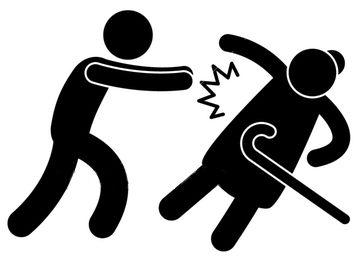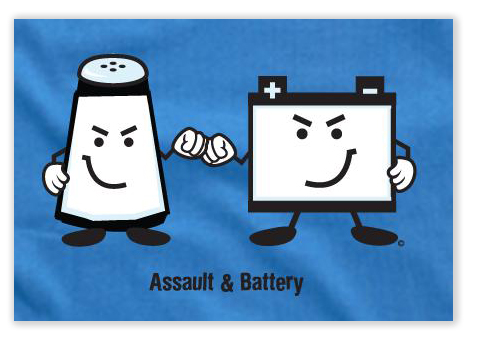We post news and comment on federal criminal justice issues, focused primarily on trial and post-conviction matters, legislative initiatives, and sentencing issues.
IF ERROR WAS NOT PLAIN, WAS COUNSEL STILL INEFFECTIVE?
It has happened often enough before: A Circuit decision was plainly against a sentencing position the defendant wanted to take, and so counsel did not fight the issue. Then, after the defendant’s conviction is final, the law changes. Was counsel ineffective for not raising the issue?
 Jolol Carthorne was sentenced as a Guidelines career offender in part because he had a Virginia prior for assaulting a police officer. Circuit precedent at the time held the crime to be a crime of violence, and his lawyer did not fight it, despite the fact that Virginia law held that the slightest touching was enough for conviction.
Jolol Carthorne was sentenced as a Guidelines career offender in part because he had a Virginia prior for assaulting a police officer. Circuit precedent at the time held the crime to be a crime of violence, and his lawyer did not fight it, despite the fact that Virginia law held that the slightest touching was enough for conviction.
On appeal, Jolol argued that the assault should not count for career offender status. The problem, of course, was that Jolol did not raise the issue at sentencing, so he could only win the issue if the district court committed plain error. The Circuit agreed that his assault on the cop was not a crime of violence, but said that because its prior decisions (all of which had since discredited by Johnson and Mathis and other Supreme Court cases) were binding on the district court when Jolol was sentenced, the sentencing error was not FRCrimP 52(b) “plain error.” Jolol had noting coming.
 Jolol then filed a 2255 motion complaining that his lawyer should have argued that a Virginia conviction for assaulting a cop was no longer a crime of violence. His lawyer admitted he was not even aware of the analysis required by the recent Supreme Court cases application offenses, such as Johnson v. United States, Mathis v. United States, and Descamps v. United States, for purposes of the career offender enhancement. But the district court said that since there was no plain error in sentencing Jolol as a career offender, there was no ineffective assistance of counsel standard in not raising it.
Jolol then filed a 2255 motion complaining that his lawyer should have argued that a Virginia conviction for assaulting a cop was no longer a crime of violence. His lawyer admitted he was not even aware of the analysis required by the recent Supreme Court cases application offenses, such as Johnson v. United States, Mathis v. United States, and Descamps v. United States, for purposes of the career offender enhancement. But the district court said that since there was no plain error in sentencing Jolol as a career offender, there was no ineffective assistance of counsel standard in not raising it.
On the Thursday before Christmas, the 4th Circuit ruled for Jolol. It said that the plain error standard and ineffective assistance of counsel are not the same thing. “The ineffective assistance inquiry focuses on a factor that is not considered in a plain error analysis, namely, the objective reasonableness of counsel’s performance. In addition, plain error review requires that there be settled precedent before a defendant may be granted relief, while the ineffective assistance standard may require that counsel raise material issues even in the absence of decisive precedent… Claims of ineffective assistance are evaluated in light of the available authority at the time of counsel’s allegedly deficient performance. But the plain error inquiry applies precedential authority existing at the time of appellate review.”
 Defense counsel must demonstrate a basic level of competence regarding the proper legal analysis governing each stage of a case. Therefore, he or she may be constitutionally required to object when there is relevant authority strongly suggesting that a sentencing enhancement is not proper. The Circuit said that was the case here, where newer cases made clear that Virginia assault and battery did not categorically present serious risks of physical injury. Defense counsel should have known to make the argument, even though the district court probably would have rejected it because of circuit precedent.
Defense counsel must demonstrate a basic level of competence regarding the proper legal analysis governing each stage of a case. Therefore, he or she may be constitutionally required to object when there is relevant authority strongly suggesting that a sentencing enhancement is not proper. The Circuit said that was the case here, where newer cases made clear that Virginia assault and battery did not categorically present serious risks of physical injury. Defense counsel should have known to make the argument, even though the district court probably would have rejected it because of circuit precedent.
United States v. Carthorne, Case No. 16-5613 (4th Cir., Dec. 21, 2017)
– Thomas L. Root

